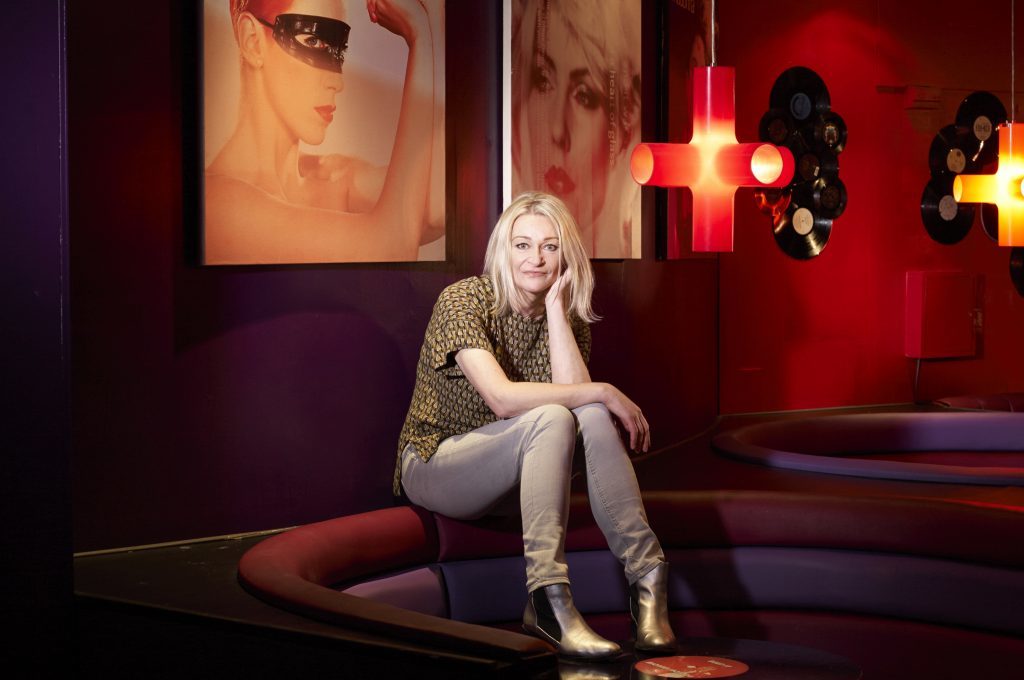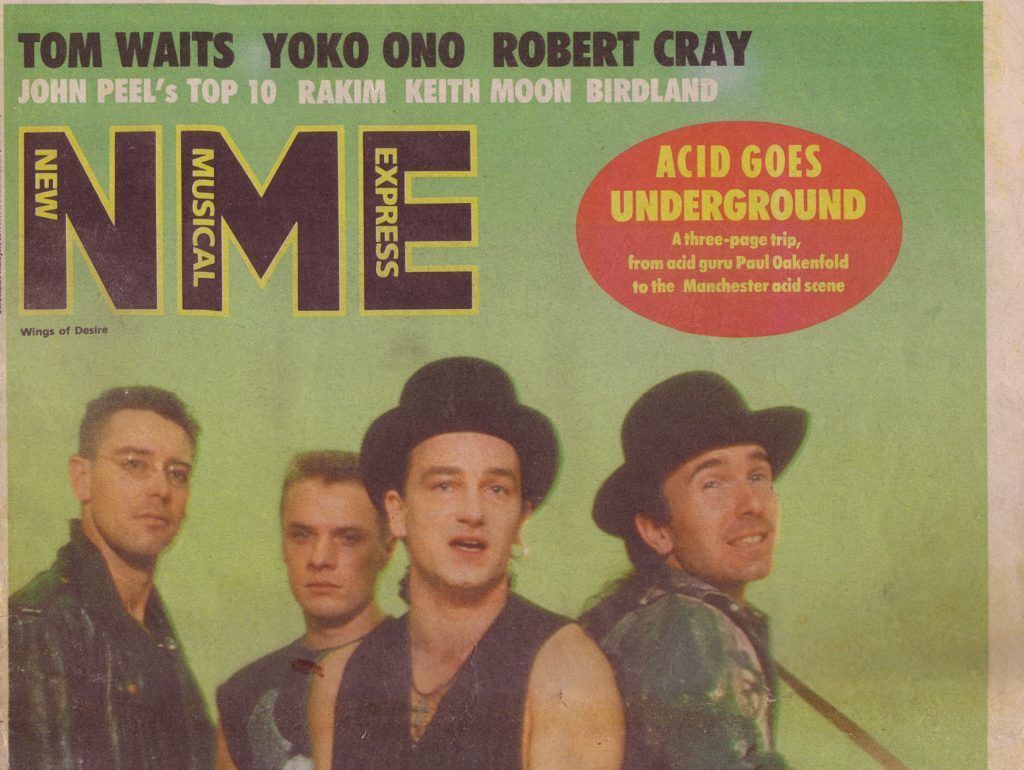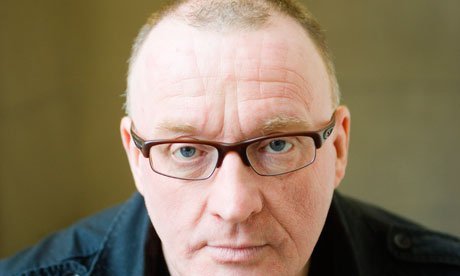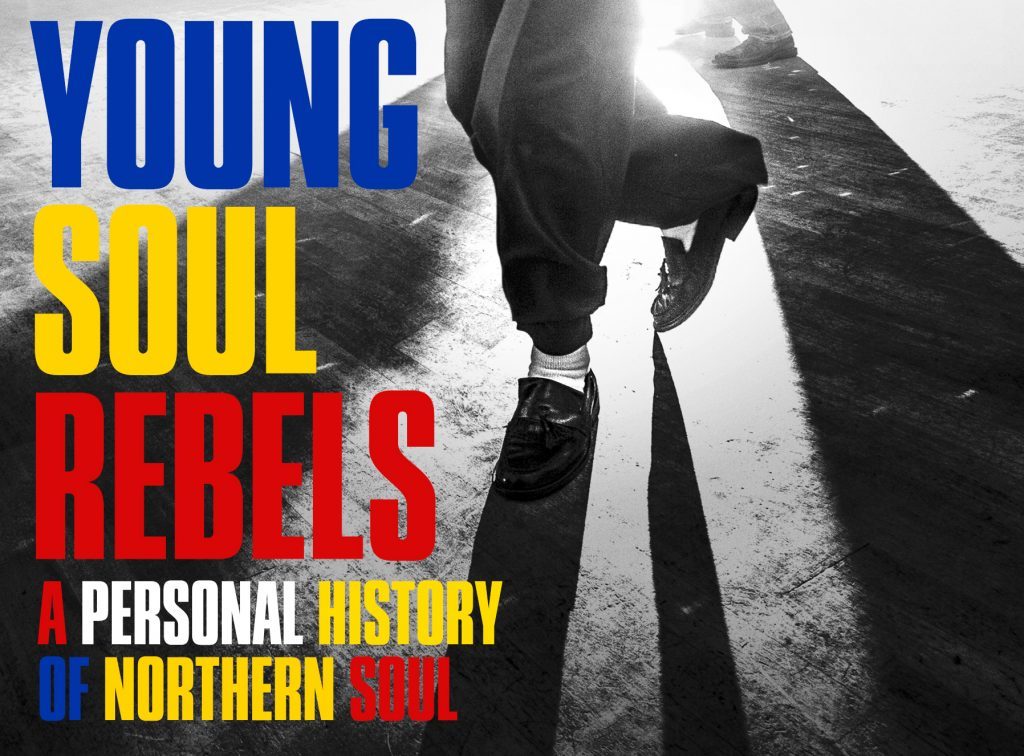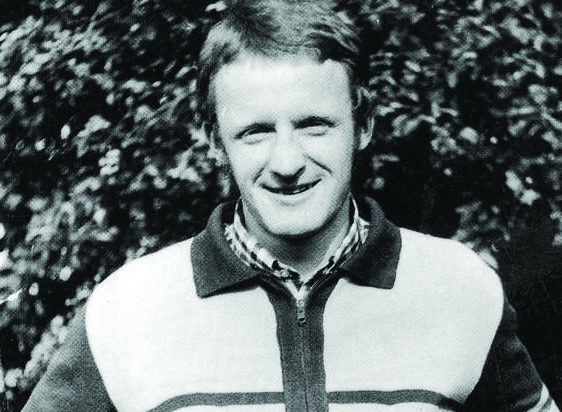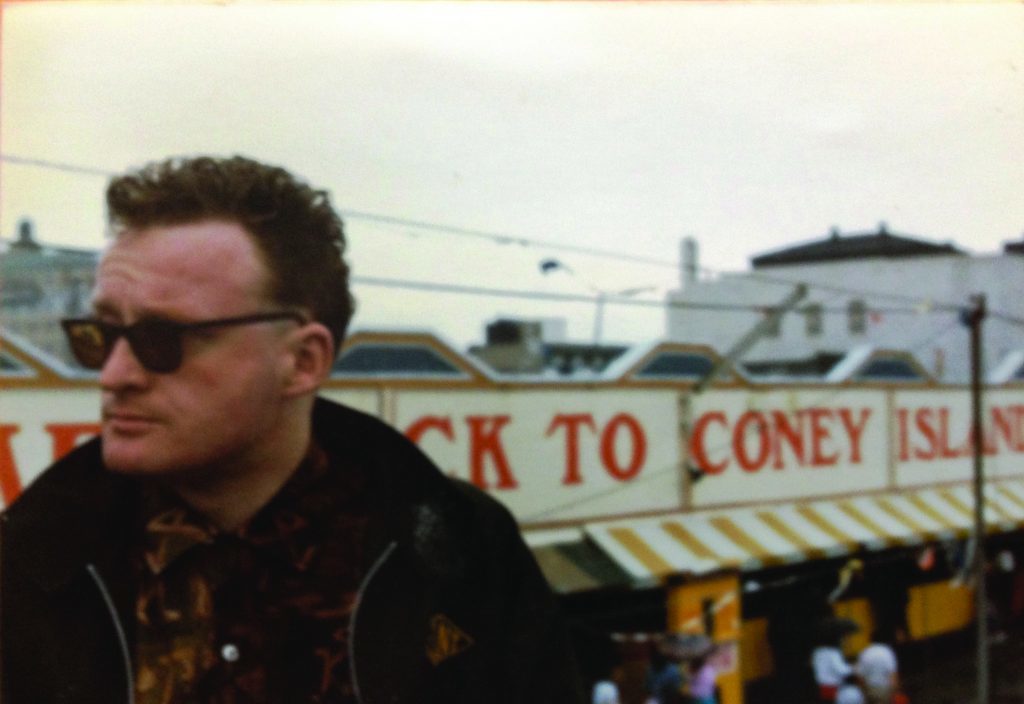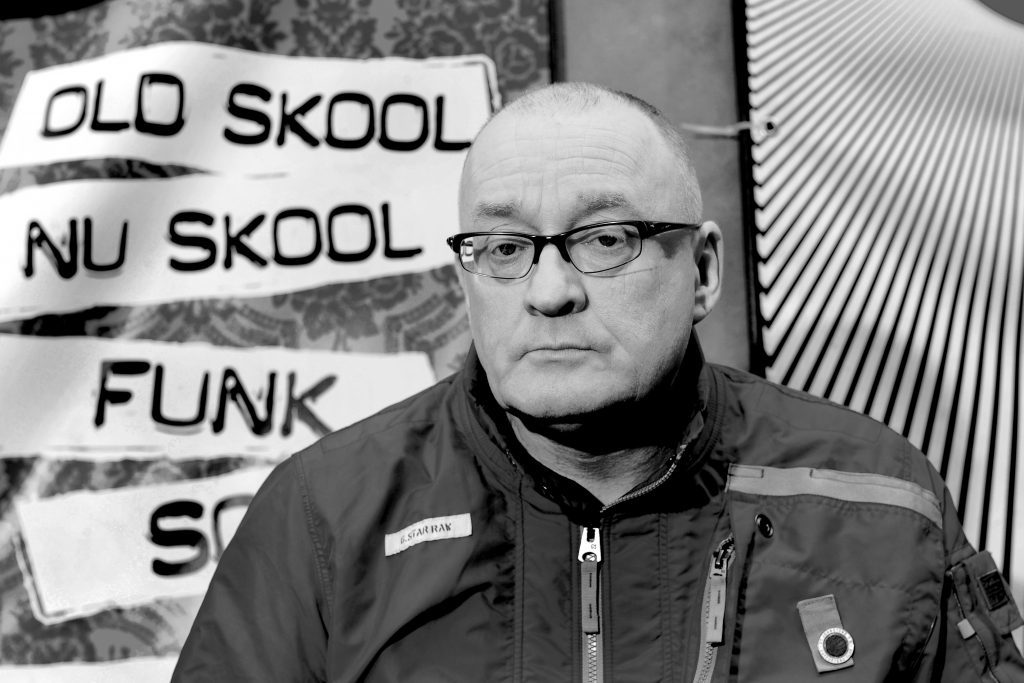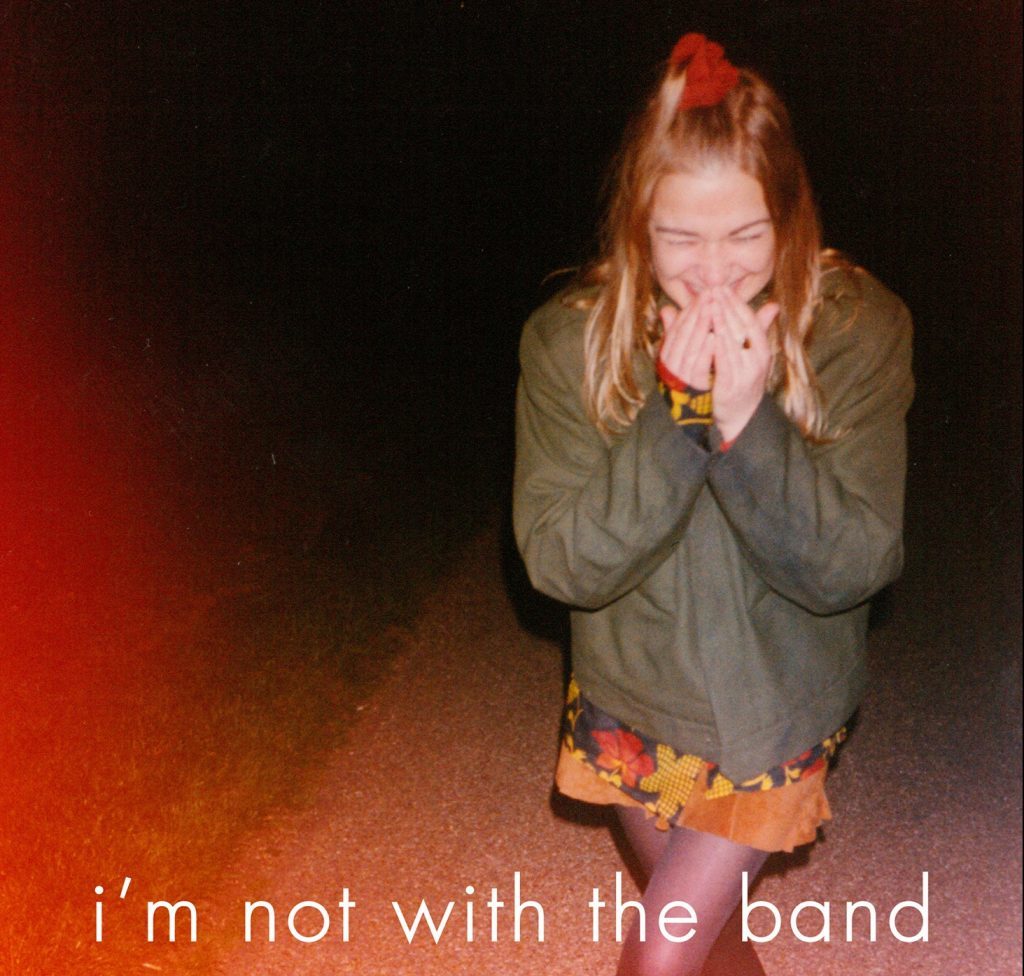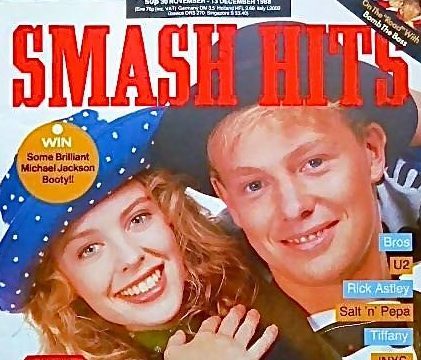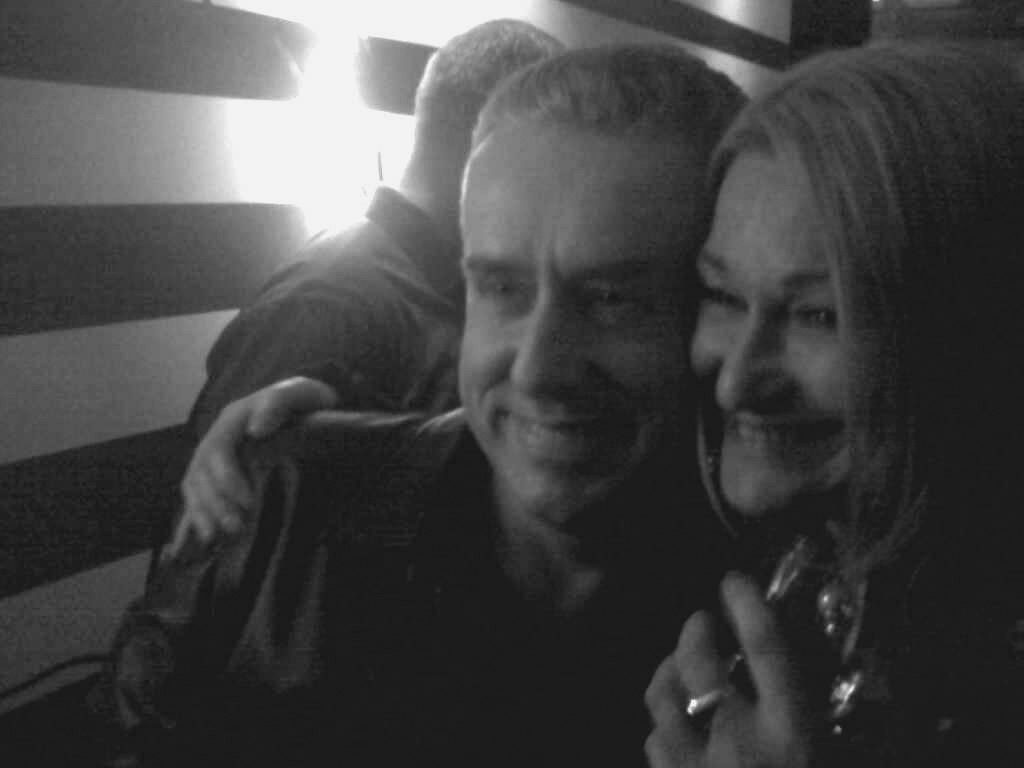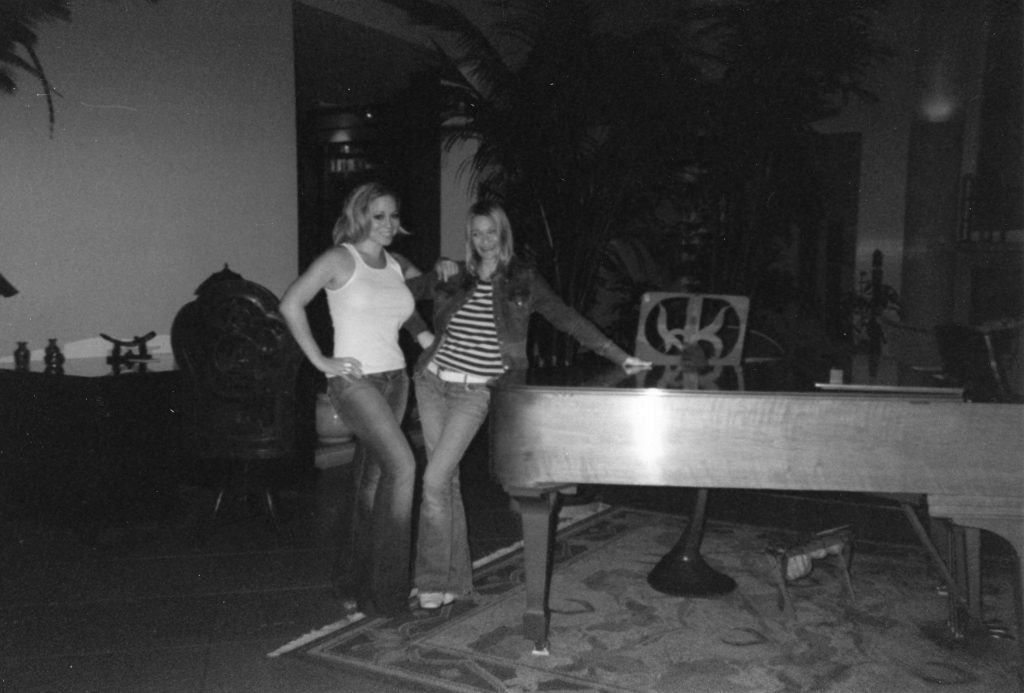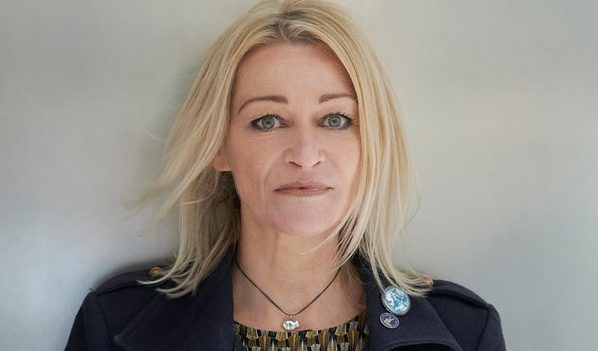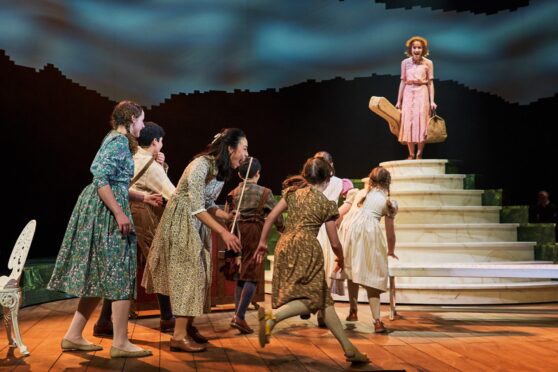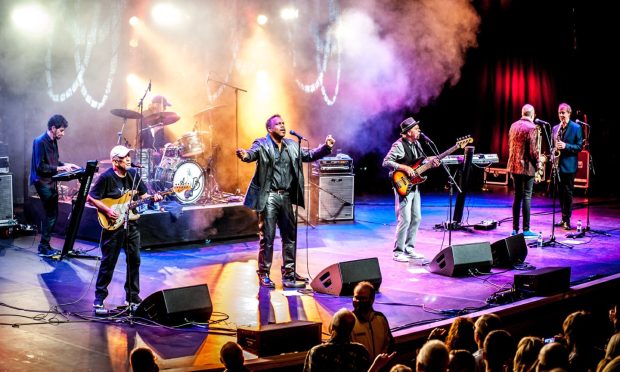In exclusive interviews, Michael Alexander speaks to Perth-raised music journalists Stuart Cosgrove and Sylvia Patterson whose new books have been nominated for the prestigious Penderyn Book Prize 2017.
They didn’t know each growing up in and around their home city of Perth and their paths crossed only a handful of times after moving to London more than a decade apart.
But the route taken by Stuart Cosgrove and Sylvia Patterson into music journalism – and their remarkable experiences interviewing some of the biggest names in pop during the 1980s – were incredibly similar.
Now, having both moved on from working at music industry bibles NME and Smash Hits respectively, the Perth-raised music hacks turned authors coincidentally find themselves side-by-side on the long-list for the prestigious Penderyn Book Prize 2017.
Cosgrove has been nominated for his book Young Soul Rebels – telling the story of Northern Soul in Britain – while Patterson has been nominated for her memoirs I’m Not with The Band: A Writer’s Life Lost in Music.
They are in prestigious company with Bruce Springsteen’s memoir Born to Run also amongst those nominated, with the shortlist due in March and the winners likely to be announced in April.
Stuart Cosgrove – Young Soul Rebels
Stuart, 64, who was nominated last year for his other soul book Detroit 67, is probably best known today as the co-host of BBC Radio Scotland’s popular comedy football phone-in Off the Ball which he presents twice a week with Tam Cowan.
The avid St Johnstone FC fan was black music editor at NME and worked at fashion and music magazine The Face before going on to hold several top executive roles at Channel 4.
He finds it “quite remarkable” that two people who overcame significant domestic upheaval growing up around Perth should have made it into the competitive world of music journalism – going on to write successful books that reflect on their upbringing.
“I only know Sylvia from a distance if I’m honest,” explains Stuart, “because she’s a lot younger than me.
“When I left for London at 17, she would have still been a young kid. But when she moved down, we did meet each other. I think we were both surprised there was someone from Perth working at the same level in different magazines.
“We were never close in that we moved in the same circles or that.
“At the same time I’ve always looked out for her with a little bit of warmness in my heart. She’s come some distance to achieve what she’s done.”
Young Soul Rebels is the story of Northern Soul in Britain and follows Stuart from his teenage years listening to Motown at youth centres in Letham to his days living in the north of England at the height of legendary clubs Wigan Casino and Blackpool Mecca.
He was attracted to the scene because it was “very underground and a bit roguish.”
But the book is also a personal journey where Stuart reflects on the death of his father when he was a child.
“I was about seven or eight when my father died,” he says.
“It was a really difficult time. I was growing up in a family where I had two sisters. Suddenly my dad who was the bread winner – he was a lorry driver in Perth and was involved in the trade union movement – was gone. As a child you don’t even understand how money comes into your house, what things cost or anything like that.
“It became very clear very quickly that my mum was struggling a wee bit. My mum got a job working in a shop, and we all had to muck in. I was cooking tea from the age of about eight.”
Stuart couldn’t afford to buy records until he was 19 or 20.
Yet he was inspired by the Letham community centre music scene where a lot of the DJs were hard core soul and Motown fans.
“Whereas Sylvia I think got more into purer pop music and was more into boy bands,” he says, “I was a few years earlier so I got lucky. My life coincided with the absolute height of Motown in 1967 and 1968.”
At NME, Stuart interviewed the likes of Prince, Stevie Wonder and Public Enemy.
But his stand out tale is the time that he interviewed the late American soul singer Jimmy Ruffin. Because it was Stuart’s birthday, his Perth pals ended up cracking open some beer at Stuart’s then London flat – and Ruffin ended up staying for a party and spent the night in the back room!
Stuart says writing books is a “much lonelier experience” than being an office-based journalist.
For that reason, to be nominated in this increasingly digital era gives him a feeling of endorsement for all the hard work.
He is particularly chuffed that both he and Sylvia are up against Bruce Springsteen – who, coincidentally comes from Perth Amboy, New Jersey.
“I’m putting him down as a Perth boy if he wins!” laughs Stuart.
“If Sylvia and I come as runners-up we’ll be happy! A 1,2,3 for Perth!
“To be really honest it’s a pleasure to be in that kind of company.
“I was nominated last year for my other book – Detroit 67. But this year being nominated alongside a girl fae Perth – I cannae believe it!”
Sylvia Patterson – ‘Not with the band!’
Sylvia Patterson is slightly less sure about her first encounter with Stuart.
“Maybe I have met him!” she laughs.
“All I remember is sitting in the Smash Hits office three days after I joined in 1986, and this person that I’d never heard of – I didn’t know him because he’s a few years older than me I have to say! – said ‘welcome to London. It’s all going to be alright!’
“He seemed very sweet and friendly. And then I maybe met him again a decade later or something like that. It was like bloody hell – we’re fae Perth!”
Sylvia grew up on the Dunkeld Road and went to Perth Grammar School.
Musically she always considered herself to be of the post-punk generation.
A regular at clubs in Perth and Dundee run by “older male friends”, she was into the likes of Echo and the Bunnymen, Siouxsie and the Banshees and “people with the most ridiculous haircuts”.
Her musical tastes had been influenced by Radio One disc jockeys like John Peel, Annie Nightingale and Janice Long.
From her early-teens, she was also “obsessional” with reading the music press and remembers the moment in the early 1980s during the New Romantics era when she “truly appreciated” what Smash Hits was.
It was aged 20 whilst working on women’s magazines with Dundee-based Courier publisher DC Thomson, however, that she successfully applied for a Smash Hits job in London.
Sylvia admits she was “very green” when she got to the big smoke.
Yet the move gave her the opportunity to strike out on her own and take stock of life after a difficult upbringing.
“I talk about this in the book,” she says, hesitating slightly.
“I had a kind of a chaotic scenario with my mum – bless her. She had a dreadful alcohol problem, which became increasingly so as I was growing up.
“I had no real idea what was happening for a good few years.
“When I was 11 to the age of 16 was probably about the worst time for her.
“As anyone knows who’s ever grown up with an alcoholic parent, it’s very alienating, it’s very frightening, and you just kind of take yourself away from the source of the pain really, and I guess that’s why I became even more obsessional with music than even my friends and peers, because I needed somewhere to escape to.
“And what could be better than the glory of music! I was willing to be lost in something joyous and where there was a family of people.”
Sylvia says she was “really fortunate” to land a job that allowed her to combine a love of music with something she was good at.
But nothing could prepare her for the experience of interviewing some of the biggest stars of the day.
“There’s been an awful lot over 30 years,” she laughs.
“A lot of what happened in the 1990s is a blur!
“But you will never forget meeting the gigantic cultural heroes who don’t tend to spread themselves too thinly interview wise.
“To actually have a conversation, albeit for half an hour, with Prince, was just so surreal.
“There was an actual footman at the door waiting for him to come along the corridor.
https://www.youtube.com/watch?v=M-ikot3W4m4
“He had a little walkie-talkie and he was going ‘he’s walking along the corridor, he’s turning round the corridor..’.I was stifling guffaws of laughter as Prince eventually came in and sat on a seat in front of me.
“And of course he was so tiny – and beaming with purple-ness! He was very gentle, very ethereal, and all he wanted to talk about really was his creative freedom.
“Of course my task was to get him to talk about anything but that and move him along.
“He was quietly amused that Smash Hits called him the Purple Perv and the Errol Flynn of funk and all those silly things.”
Sylvia said interviewing Johnny Cash was another “big deal” because her dad was a huge fan.
“You did not meet these people very often, “she says.
“It really was a massive privilege. He was just sitting there like a gigantic block of granite and I couldn’t help myself. I just blurted out ‘oh my god it’s Johnny Cash’. And he just looked at me and said ‘how about that’!”
Others, however, took themselves “far too seriously”, and the “most pompous”, she says, was Jon Bon Jovi.
“You could not get that man to take a joke or a wheeze about anything at all. He was absolutely hopeless!
“The more seriously he took himself, the less seriously we took him.
“I remember at one point he grabbed my list of stupidly inane questions about spaghetti bolognese and harmonicas and nonsense.
“He plucked them out of my hand and went running backstage at Top of the Pops to show Richie Sambora (Bon Jovi lead guitarist) what he just had to suffer. ‘Yet another Smash Hits journalist kicking the backside out of him!’.He hated it!”
Certainly Smash Hits in the 1980s and NME in the 1990s tried to puncture through the pomposity of these super-rich stars through irreverence.
But it was the changing face of music journalism and the realisation she had all these experiences that inspired Sylvia to write her book I’m Not with The Band: A Writer’s Life Lost in Music.
“I’m saddened that irreverence is not really around anymore,” she says.
“It’s a much more brutalised superficial culture in every way now.
“In those days it was really about trying to find out if those people had a sense of humour or not.
“Today though the print music media doesn’t have any power anymore.
“The lights are literally going out, because we are not needed anymore.
“Of course it’s going to be a completely different world 20 or 30 years on. But everything is done online. The public expects everything to be free. They will not pay for magazines. They will not pay for music. It just doesn’t have a value on any level anymore.
“If you are young these days, you don’t need journalists anymore telling you what something sounds like. You can hear it even before we can. Interviews are very different in that they are very PR controlled.
“The really famous ones – and certainly the ones in America – are just not doing interviews anymore because they don’t have to. And when they do, you can be sure – even if it’s on the phone – that there will be a lawyer on the phone with their manager and a PR. That happened to me with Britney Spears a couple of years ago.
“Someone like Beyonce has already said that she just doesn’t want to do interviews ever again. Instead she’ll do an HD documentary directed by herself before she would go through with the risky scenario of talking with a stranger. It’s sad.”
Sylvia said people seem to think there’s some “magical life” attached to being a music journalist. The truth of the matter is, she says, “it’s a very difficult time to be a freelance journalist full stop.”
She adds: “That’s why it’s called ‘I’m not with the band’ as well. It’s a play on ‘I’m with the band’.
“The truth of the matter is you are kept out, you are kept at arms’ length, or it is a bit of a jousting situation. You are not the pop star’s buddy! You are really not!”
“It was also an opportunity to write about the chaotic living scenarios I’ve experienced.
“Housing, money and dreadful men, and boozing in the 90s and all that kind of thing. People were just interested. It’s been a bit of a journey!”
